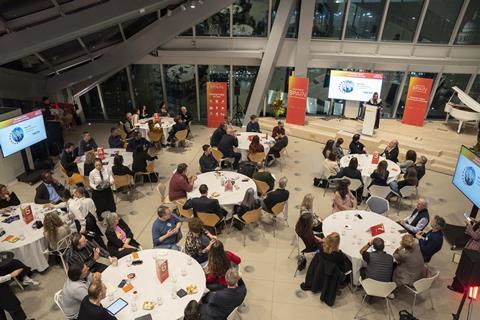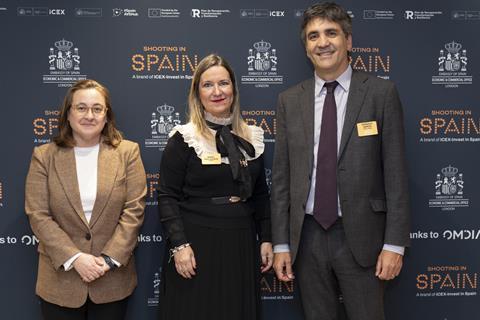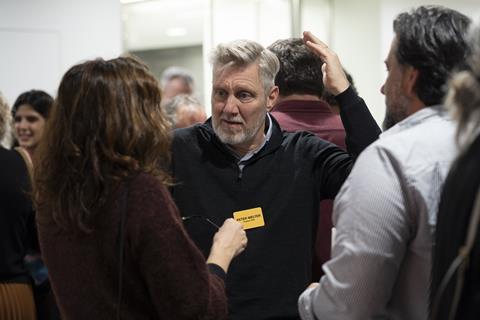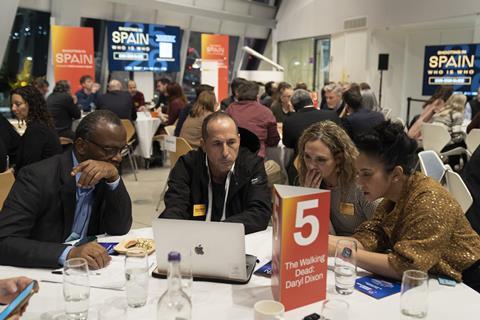The Shooting In Spain: UK Producers Evening in London in December brought together UK film and TV producers with key executives and producers from Spain to showcase the territory as an attractive, cost-effective and friendly place to film.
Spain has a proud reputation as a reliable partner when it comes to international productions, with series including HBO’s Game Of Thrones and House Of The Dragon, Netflix’s The Crown and BBC’s Killing Eve and features such as Sony/Marvel’s Venom: The Last Dance all finding suitable shooting locations in the territory.
Yet as production costs continue to rise around the world, the competition to attract international shoots intensifies as countries assemble ever more elaborate packages to attract cash-strapped producers.
Spain is one of the territories at the head of this race, looking to provide a competitive home for international producers who must find filming locations that tick boxes on multiple fronts.
“We need facilities and locations, because without those you’ll be spending money to close gaps, but we also need easily accessible incentives,” says Bianca Gavin, head of production for scripted at London-based film and TV outfit Pulse Films, who is considering the advantages of shooting in Spain for an upcoming project.
“You then start to get more granular,” continues Gavin, also chair of the Production Guild of Great Britain, “with questions around how long it might take to get your money back, what qualifies and what doesn’t — those types of queries.”
Gavin was among a host of guests at the inaugural Shooting in Spain: UK Producers Evening, held in London in December 2024. UK and Spanish producers came together to share intelligence, knowledge and practical requirements with the aim of forging new relationships.
Shooting in Spain explored the support on offer while also connecting Spanish and UK-based professionals in person. Attendees included producers from Lobo Films, Escape Plan, Elation Pictures and Quiddity Films.
“We want to offer a balanced package,” explains Vanesa Alvarez, foreign direct investment projects director at ICEX-Invest in Spain. “We have the fiscal incentive first, which has been improving over time, and we are always trying to make it more attractive.
“We also have three special regions and they correspond to the regions in Spain where the tax system is different,” adds Alvarez. The Basque Country, she explains, can offer incentives of up to 60%, while Navarra offers up to 50% and the Canary Islands runs to 54%.
“The Canary Islands offer one of the highest tax rebates in the world: 54% for the first €1m [$1.04m] and then 45% on the remainder,” adds Andy McLeod, executive producer for FilmCanaryIslands.
He says the islands’ industry has boomed over the past decade, thanks to the variety of locations they offer. His team recently worked on Paramount+ drama Stags, which was produced by the UK’s Eleven Film. McLeod says FilmCanaryIslands was able “to guide [Eleven] through the many Spanish quirks, like accounting for the tax rebate and employment laws”.
“Our islands are small but have very diverse locations,” he adds. “They are often described as a continent in miniature, which makes traveling very convenient between locations when compared to a full-sized country.”
Alvarez highlights that achieving the advertised rates in the three regions requires additional demands to be met and explains a key element of her job is to ensure Spain’s tax incentive schemes are transparent and easy to understand.
She emphasises that Spain’s offering amounts to more than just soft money. “We have a diversified industry, with deep pools of talent and support around things like fast-track visas — the entire crew is granted the same 90 days as if they were coming in on a tourist visa, but they can shoot and work on those days,” she says. “And if they need to stay longer, then we have another regime for crews — the key thing we want is to be attractive.”
Spain’s combination of tax incentives and broader support is effective, particularly at a time when budgets are squeezed. Ferran Piquer, chief executive and co-founder at Spain’s Efectoscopio, says he is seeing “a boom” in co-productions, especially where post-production and visual effects are included in the eligible expenses, with local companies able “to optimise post-production resources to the maximum” to drive efficiencies in a budget-conscious market.
“There is certainly more than one production on our development slate that very strongly lends itself to shooting in Spain,” says Pulse’s Gavin. “We’re very excited about the future.”








![The Brightest SunScreen[Courtesy HKIFF]](https://d1nslcd7m2225b.cloudfront.net/Pictures/274x183/3/5/0/1448350_thebrightestsunscreencourtesyhkiff_312678.jpg)


























